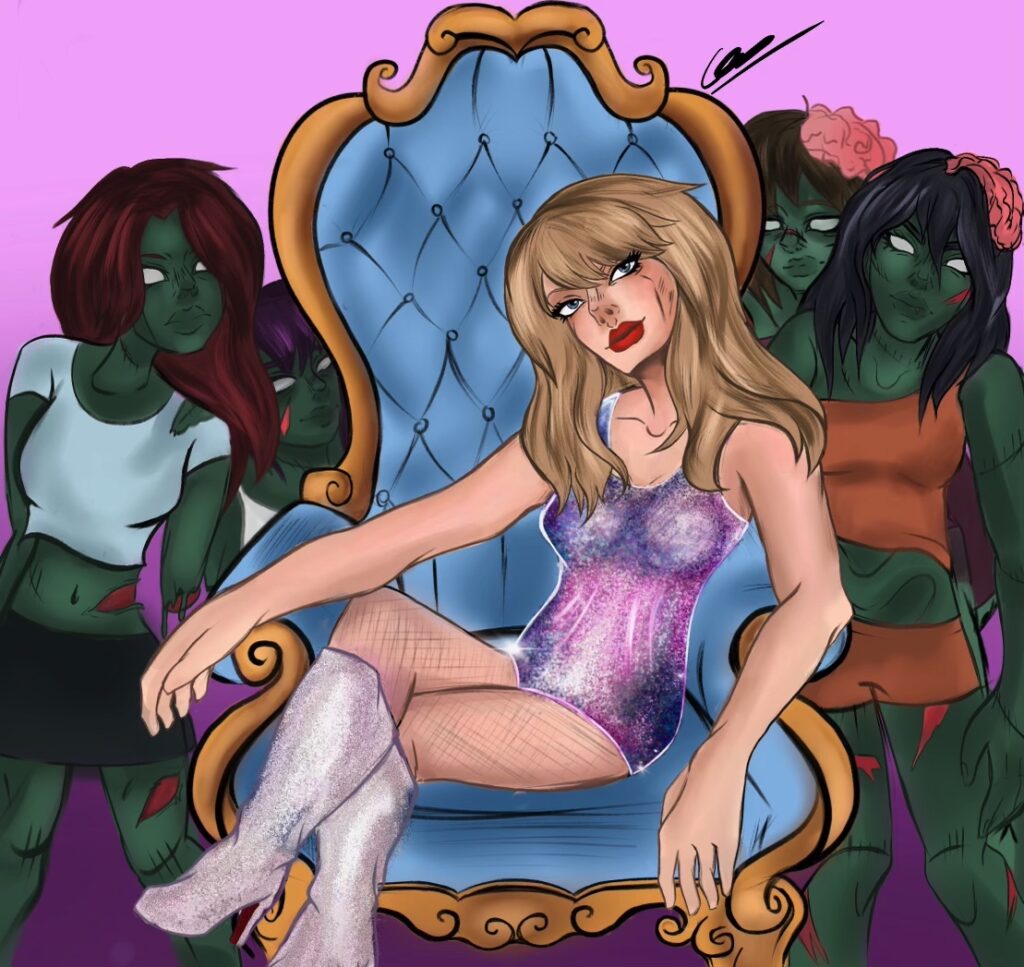Suyeon Ryu is the Editor-in-Chief of The Stuyvesant High School Spectator in New York City.
Taylor Swift’s instagram page took an unexpected turn when her typical posts about her Eras tour and her new album, The Tortured Poets Department, were followed by her hugging her cat—with a caption that endorsed Kamala Harris.
To her credit, she didn’t have much choice. She was responding to the AI-fueled misinformation floating around the internet about her endorsement of Donald Trump.
Yet, her post marks a concerning trend in American politics — politicians are relying on celebrities to co-opt their voters, and the two spheres of politics and entertainment are being blurred. It’s easy to see this in action, from both presidential candidates. Kamala Harris brought Megan Thee Stallion into a rally, with the slogan “Hotties for Harris.” CharlieXCX endorsed Harris by posting, “kamala IS brat.” Similarly, Trump brought Bryce Hall and NELK boys, Tiktok influencers, into one of his rallies, with Hall yelling out “We need Trump back really bad.”

Pop artists and entertainers aren’t political experts. There is no guarantee that they have examined each candidate’s policies. I would hope that they do proper research to the best of their abilities, but at the end of the day, they are no different from the average voter — their political opinions are just as subjective as ours.
Entertainers are also often pressured by the public to announce political affiliations, on the basis that they are influential people who hold a moral responsibility to hold the “correct” opinion. This may force artists to push aside doubts and commit to endorsing a certain candidate before they are fully sure of themselves. Moreover, most artists don’t pursue their careers because they are passionate about politics or because they want to influence the public toward moral goodness. It is odd to place the burden of political influence onto artists on the basis of morality when we don’t do so in other areas of life; for instance, nobody would bat an eye at an artist smoking, stirring up petty drama online, or even committing legal crimes like tax fraud or drunk driving. We don’t expect artists to be moral compasses in other areas of life, and politics should be no exception.
The problem with pop artists then endorsing certain candidates is that they attempt to mobilize their fanbase into supporting their political opinion. Pop artists form deep parasocial relationships with their fans, and many form die-hard fan bases that idolize them. Artists’ endorsements of politicians inhibit fans from foregoing their own research and risk them entering the decision of voting with an already biased mindset.
Additionally, the mixing of entertainment and politics can convolute the weight that politics carries, trivializing it into something more light-hearted. Entertainment is often a way for people to unwind, have fun, and socialize. Its focus is on enjoyment, so it’s okay to bend rules and put on a show. Nobody knows what “brat” really means, but it’s okay, because we don’t need to. However, politics is often directly connected to people’s livelihoods, their quality of life, and major international relations. It should stay serious and separate from leisure.
Young voters exist outside their social media profiles and can be reached with sincere, well-crafted election campaigns. Reducing the election down to trying to make a campaign go viral, often through celebrities, does a disservice to our political landscape. We should not try to find entertainment in politics, or politics in entertainment. It is not a joke that we are in the midst of a political crisis, and we should be forming our own judgements, based on our own research.



